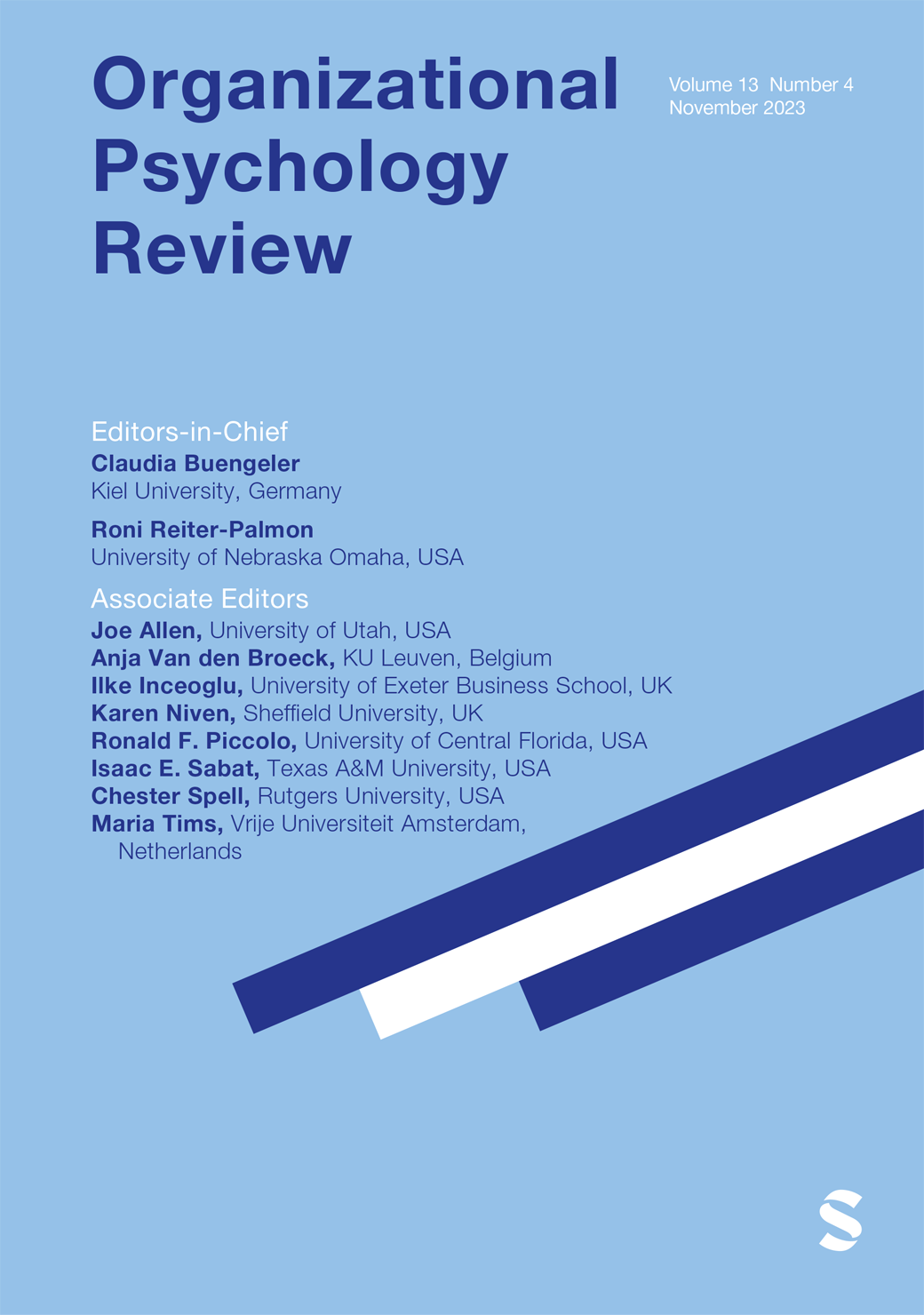穿越极限空间:从工作到家庭通勤的角色转变和恢复视角
IF 7.1
1区 心理学
Q2 MANAGEMENT
引用次数: 5
摘要
新冠肺炎期间远程工作的增加引起了人们对通勤作为工作时间过渡的功能的关注。虽然之前的工作-家庭研究将通勤作为角色转换的一个例子,但人们对通勤的特征或通勤中的行为和过程如何影响其性质知之甚少。我们整合了对通勤特征、角色转换和心理恢复的研究,以发展通勤的过渡视角。我们对极限空间进行了概念化,将其物理和时间维度以及心理维度区分为通勤过程中转换的空间特征,以及在转换过程中可能感知到的无角色体验。我们认为,通勤过程中感知到的极限释放了心理角色转换和恢复的认知资源。基于我们的概念模型,我们讨论了角色转换、通勤和远程办公研究的意义。简明语言摘要通勤为个人从工作领域转移到家庭领域提供了一个定期的机会。在进行这种转变的同时,通勤者占据了一个“临界空间”,在这个空间里,他们既没有完全参与工作,也没有完全参与家庭的想法和行为。我们解释和探索了这个空间的物理、时间和心理维度,通勤的特征如何塑造这些维度,以及这些维度如何为个人从工作中恢复过来并在通勤后更有效地转移到家庭角色领域创造机会。本文章由计算机程序翻译,如有差异,请以英文原文为准。
Along for the ride through liminal space: A role transition and recovery perspective on the work-to-home commute
The increase in remote work during COVID-19 has drawn attention to the function of commutes as work-home transitions. While prior work-home research has referenced commutes as an example of role transitions, little is known about how the characteristics of a commute or the behaviors and processes undertaken in a commute affect their nature. We integrate research on commute characteristics, role transitions, and psychological recovery to develop a transitional perspective of commuting. We provide a conceptualization of liminal space that differentiates its physical and temporal dimensions and its psychological dimension as characteristics of the space through which one transitions during the commute and the experience of rolelessness one may perceive while doing so. We argue that perceived liminality during the commute frees cognitive resources for psychological role transition and recovery. Based on our conceptual model, we discuss implications for role transitions, commuting, and telecommuting research. Plain Language Summary Commutes provide a regular opportunity for individuals to shift from the work domain to the home domain. While making this transition, commuters occupy a “liminal space” in which they are neither fully engaged with work or home thoughts and behaviors. We explain and explore the physical, temporal, and psychological dimensions of this space, how the characteristics of commutes shape these dimensions, and how these dimensions create an opportunity for individuals to both recover from work and more effectively shift into the home role domain after the commute.
求助全文
通过发布文献求助,成功后即可免费获取论文全文。
去求助
来源期刊

Organizational Psychology Review
Multiple-
CiteScore
10.00
自引率
1.60%
发文量
25
期刊介绍:
Organizational Psychology Review is a quarterly, peer-reviewed scholarly journal published by SAGE in partnership with the European Association of Work and Organizational Psychology. Organizational Psychology Review’s unique aim is to publish original conceptual work and meta-analyses in the field of organizational psychology (broadly defined to include applied psychology, industrial psychology, occupational psychology, organizational behavior, personnel psychology, and work psychology).Articles accepted for publication in Organizational Psychology Review will have the potential to have a major impact on research and practice in organizational psychology. They will offer analyses worth citing, worth following up on in primary research, and worth considering as a basis for applied managerial practice. As such, these should be contributions that move beyond straight forward reviews of the existing literature by developing new theory and insights. At the same time, however, they should be well-grounded in the state of the art and the empirical knowledge base, providing a good mix of a firm empirical and theoretical basis and exciting new ideas.
 求助内容:
求助内容: 应助结果提醒方式:
应助结果提醒方式:


